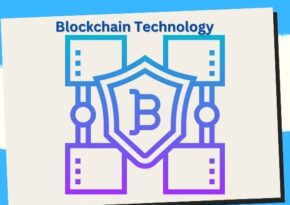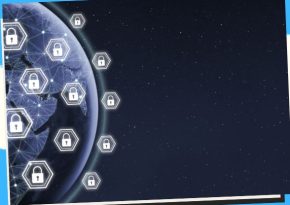
Unlocking Digital Trust: How Blockchain Revolutionizes Security 🔒
💡 Trust is the currency of the digital age, and blockchain is the vault. Explore its role in safeguarding your online transactions and data.
🌐🔗💼 The Role of Blockchain in Ensuring Digital Trust 💼🔗🌐
In the digital age, trust is a precious commodity. Whether you’re sharing personal information, conducting business transactions, or browsing the web, trust is the bedrock upon which the digital world stands. But with an ever-increasing number of cyber threats and data breaches, maintaining that trust can be challenging. This is where blockchain technology steps in, donning the cape of a digital guardian angel, ensuring digital trust and transparency in an otherwise murky online world.
What is Blockchain, Anyway? 🤔
Let’s start with the basics. Blockchain is a decentralized and distributed digital ledger technology. It’s a chain of blocks, each containing a list of transactions. These blocks are linked together and secured using cryptographic techniques, making tampering with the information stored within nearly impossible. 🧐
Picture a massive, open book that anyone can read but no one can edit once a page is written. This is what makes blockchain revolutionary – it provides an immutable record of data that can be trusted by all parties involved. 📚🔒
Trust in Digital Transactions 💸💳
One of the most obvious areas where blockchain excels is in financial transactions. Trust is paramount when you transfer money digitally, whether through a bank, a payment app, or even buying something online. You want to ensure your money reaches its intended destination without hiccups or fraud.
Traditional financial systems rely heavily on intermediaries like banks to verify and facilitate these transactions. While this has worked for centuries, it’s not without its flaws. Intermediaries can be slow, costly, and prone to human errors. Moreover, they might not always have your best interests at heart.
Blockchain technology eliminates the need for these intermediaries by allowing peer-to-peer transactions that are secure and transparent. When you send digital assets via blockchain, you can be confident that the transaction is legitimate and will be recorded accurately on the blockchain. This trust is fundamental in reshaping the financial industry, enabling faster, cheaper, and more accessible transactions worldwide. 💰🌍🚀
Supply Chain Transparency 📦🚢
Blockchain trust-building superpowers extend beyond the realm of finance. In the world of supply chain management, where products traverse a complex web of manufacturers, distributors, and retailers, transparency and trust are vital.
Imagine buying a premium organic product only to discover it’s not as advertised. With blockchain, you can trace that product’s journey from farm to shelf. Each step is recorded on the blockchain, providing a tamper-proof history. This ensures that what you see is what you get, and you can trust the authenticity and quality of the product you’re purchasing. 🍏📋
Additionally, blockchain helps prevent counterfeit goods from entering the market. Luxury brands, pharmaceutical companies, and even the art world are using blockchain to verify the authenticity of their products, protecting consumers from fraud and ensuring the integrity of their brands.
Digital Identity and Privacy Protection 🆔🔒
Online identity theft and data breaches are rampant in today’s digital landscape. Personal information is a hot commodity on the dark web; once it’s out there, it’s tough to regain control. 🕵️♂️💻
Blockchain offers a solution by enabling secure and self-sovereign digital identities. Instead of relying on centralized databases vulnerable to hacking, your digital identity can be stored on a blockchain. You have control over your identity and can grant permission for specific entities to access your information, enhancing your privacy and security online. 🔐👤
With blockchain, your personal data is stored so that even service providers can’t access it without your explicit consent, reducing the risk of data breaches and identity theft. This technology empowers individuals to have greater control over their digital lives.
Voting and Democracy 🗳️🏛️
Trust is the linchpin of any functioning democracy. Yet, electoral fraud and voter suppression have raised questions about the integrity of elections worldwide. Blockchain technology is emerging as a potential savior for democracy by ensuring transparent and secure voting systems. 🙌🇺🇳
With blockchain-based voting, each vote is recorded on an immutable ledger, eliminating the possibility of tampering or manipulation. Voters can verify their choices, and the results are publicly available for scrutiny. This bolsters trust in the electoral process and enhances participation, as people can vote securely from the comfort of their homes. 🗽✉️
Smart Contracts: Trust in Automation 📃🤖
Contracts, whether for business agreements, insurance claims, or any other legal matter, are fundamentally built on trust. However, they can be subject to disputes, delays, and expensive legal processes. Enter smart contracts powered by blockchain technology.
Smart contracts are self-executing contracts with the terms and conditions of the agreement written directly into code. Once the predefined conditions are met, the contract executes automatically without intermediaries. This reduces the risk of fraud, ensures swift execution, and enhances trust between parties. 💼📜🤝
For example, in an insurance smart contract, if your flight is canceled, the contract can automatically trigger a payout without the need for you to file a claim and wait for an assessment.
Challenges and Considerations 🤨🤔
While blockchain technology offers immense promise in building digital trust, it’s not without its challenges and considerations.
- Scalability: As blockchain networks grow, scalability becomes a concern. Some popular blockchains like Bitcoin and Ethereum have faced congestion and high transaction fees during periods of high demand.
- Regulation: Governments and regulatory bodies are still catching up with the technology. Striking a balance between innovation and regulation is a delicate dance.
- Energy Consumption: Proof-of-work blockchains, like Bitcoin, require substantial energy for mining. This has raised concerns about their environmental impact.
- User Experience: Blockchain applications can be complex and intimidating for the average user. Improving user interfaces and experiences is crucial for mass adoption.
- Interoperability: Different blockchains often don’t communicate well with each other. This can hinder the seamless transfer of assets and data.
- Security: While blockchain is secure, vulnerabilities in smart contracts or poorly designed blockchain applications can still lead to hacks and losses.
The Future of Trust 🚀🌟
Blockchain technology is like a beacon of hope in the digital wilderness, illuminating the path to a more trustworthy online world. It’s not just about revolutionizing finance or supply chains; it’s about empowering individuals, strengthening democracies, and redefining how we interact and transact in the digital realm.
As blockchain continues to mature and overcome its challenges, we can expect it to play an even more significant role in ensuring digital trust. From tokenizing assets to democratizing access to financial services, blockchain has the potential to reshape industries and empower individuals like never before. 🔮🌐🌈
In the end, blockchain isn’t just about technology; it’s about trust – in a world where digital interactions are an integral part of our lives. And as we navigate this ever-evolving digital landscape, blockchain will be there, silently and reliably guarding the trust we hold dear. 🛡️🌠💪
So, whether you’re sending cryptocurrencies, tracking the provenance of your favorite coffee, or casting your vote in the next election. Remember that blockchain is your steadfast ally, working tirelessly to ensure that trust remains at the heart of the digital age. 🤝🌐✨
Related Queries
Blockchain’s role in digital trust
Ensuring trust with blockchain technology
The revolution of trust in the digital age
Blockchain’s impact on online security
Cybersecurity and digital trust
Building trust in the virtual world
Blockchain in business: Guardian of trust
Investing in the future of digital trust
Blockchain’s influence on online transactions
Securing your digital footprint with blockchain
Save/Share this story with QR CODE
Disclaimer
This article is for informational purposes only and does not constitute endorsement of any specific technologies or methodologies and financial advice or endorsement of any specific products or services.
📩 Need to get in touch?
Feel free to Email Us for comments, suggestions, reviews, or anything else.
We appreciate your reading. 😊Simple Ways To Say Thanks & Support Us:
1.) ❤️GIVE A TIP. Send a small donation thru Paypal😊❤️
Your DONATION will be used to fund and maintain NEXTGENDAY.com
Subscribers in the Philippines can make donations to mobile number 0917 906 3081, thru GCash.
3.) 🛒 BUY or SIGN UP to our AFFILIATE PARTNERS.
4.) 👍 Give this news article a THUMBS UP, and Leave a Comment (at Least Five Words).
AFFILIATE PARTNERS

World Class Nutritional Supplements - Buy Highest Quality Products, Purest Most Healthy Ingredients, Direct to your Door! Up to 90% OFF.
Join LiveGood Today - A company created to satisfy the world's most demanding leaders and entrepreneurs, with the best compensation plan today.



 Business Technology, Finance Technology & Information Technology
Business Technology, Finance Technology & Information Technology





